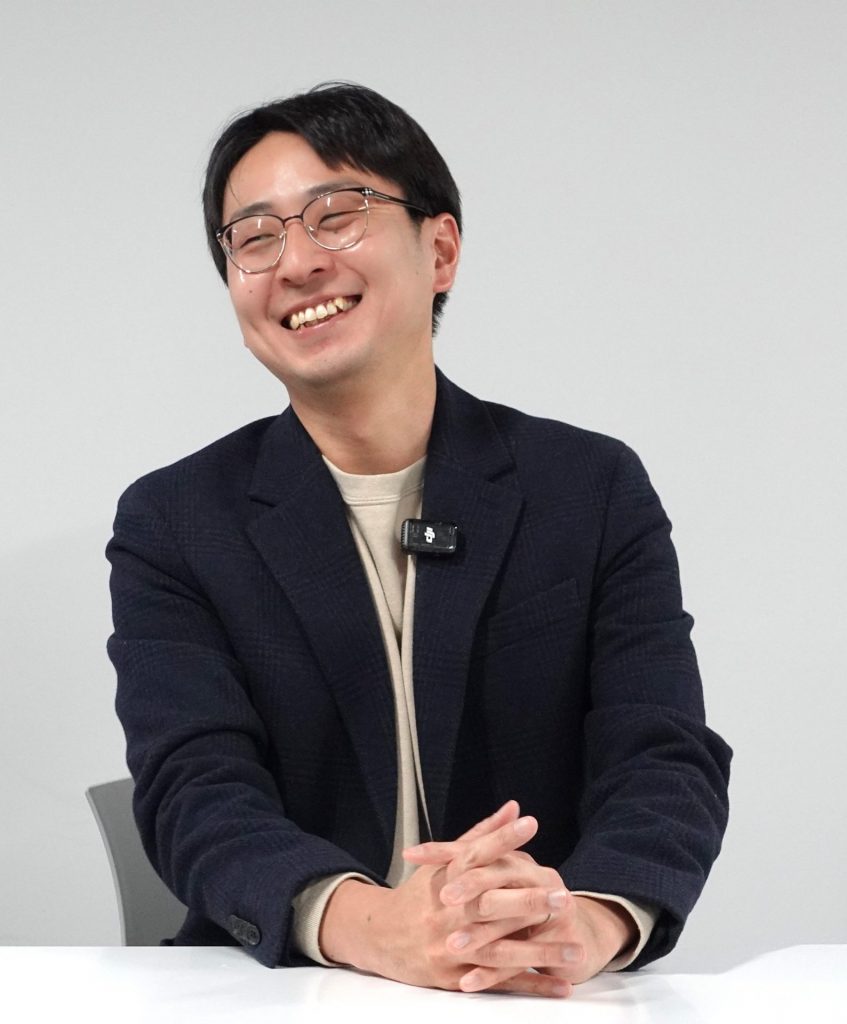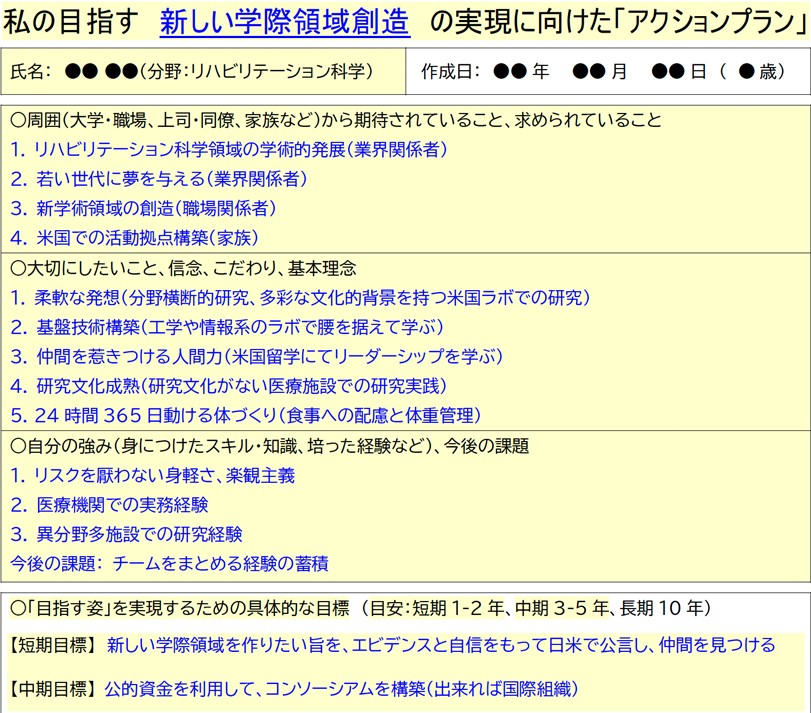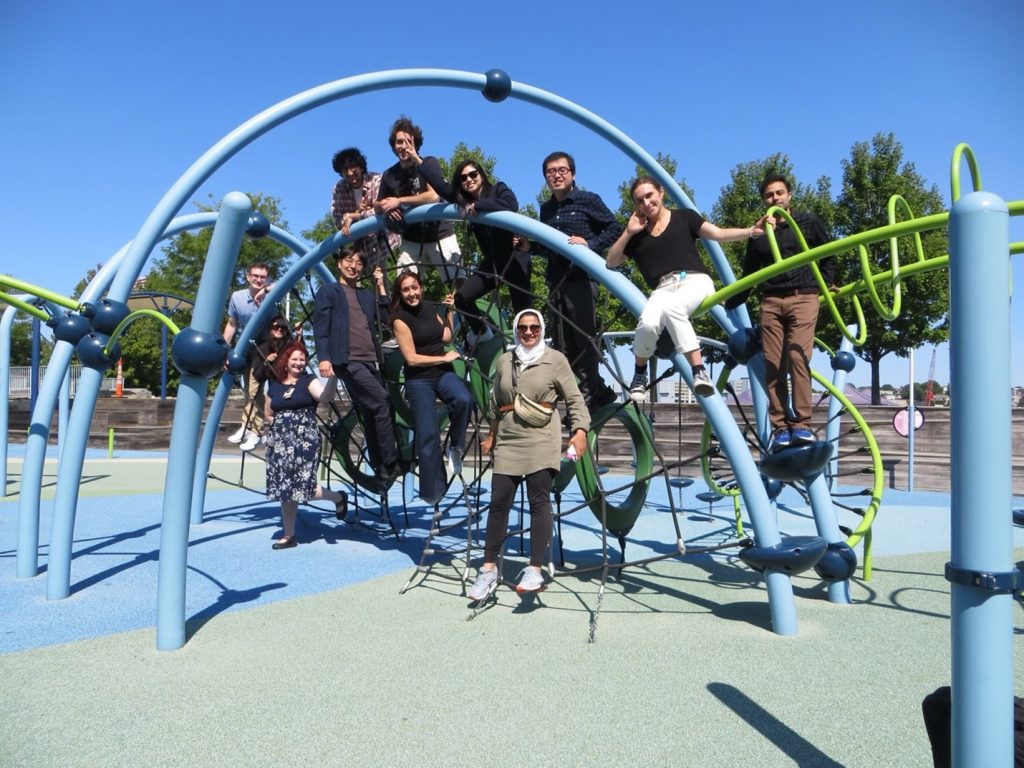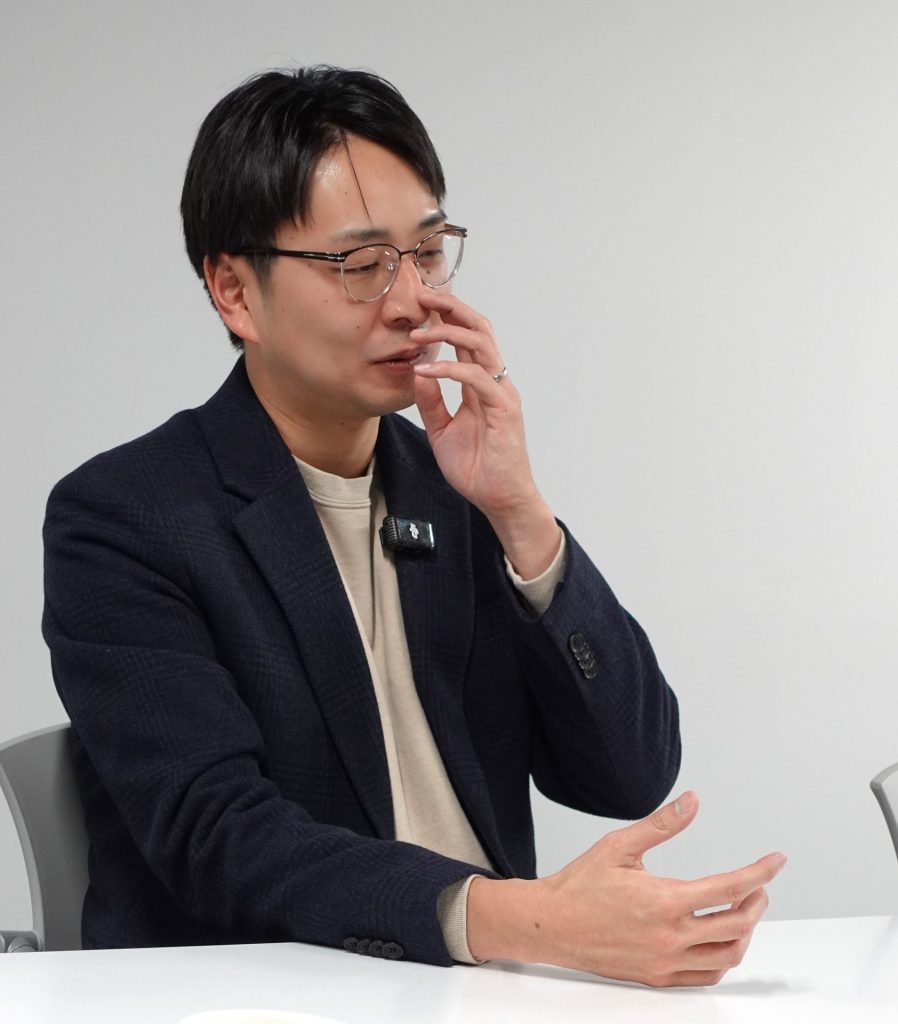
Dr. Hirotaka Iijima, Assistant Professor, Department of Physical Medicine & Rehabilitation, Harvard Medical School(until September 2023, Nagoya University Institute for Advanced Research/Graduate School of Medicine)
After working as a physical therapist in the clinical, Hirotaka Iijima expanded his career into the field of rehabilitation science. Building on his experience at T-GEx, he pursued a research career in the United States, an uncommon path for Japanese researchers in this field. Now he conducts research at the Department of Physical Medicine & Rehabilitation at Harvard Medical School. We asked him how his experience at T-GEx shaped his pursuit of new frontiers and influenced his career path.
—Dr. Iijima, you joined T-GEx when you assumed your post at Nagoya University in 2019. Why did you decide to apply?
It all started with an invitation from Nagoya University Professor Yusuke Matsui (Yusuke Matsui - My portal - researchmap), who was my mentor at the time. It was at the end of my term studying abroad at the University of Pittsburgh. I was in the midst of wrapping up my research, and to be honest, I was so mentally and physically exhausted that it was hard to feel positive about anything. But Professor Matsui encouraged me to apply. He said, "You have nothing to lose, so why not give it a shot?" So I did. I applied, but I didn't have high hopes. I figured that, given my academic field, I didn’t stand much of a chance.
—What was it about your field that made you think the odds were against you?
Well, my field isn’t known for its academic rigor, and I guess I felt like it didn’t really fit with T-GEx's mission. So when I was accepted despite that, it gave me a lot of confidence. It gave me the courage to step up to new challenges.
— What was it like actually being in the program?
Building connections with researchers in different fields certainly had a positive impact on my research and my future. I work in what I suppose is a somewhat isolated field, and with my lab being at the Daiko campus, I was rather far from the Higashiyama and Tsurumai campuses, where the other graduate schools are located. In the T-GEx program (Program Details - T-GEx), our seminars and training were held at the Higashiyama campus, which gave me opportunities to interact with people in other fields that I wouldn’t have had otherwise. I jumped at every chance to go to the Higashiyama campus—in fact, I found myself wishing for even more opportunities! [laughs]
— That was during the COVID-19 pandemic, when there were fewer in-person programs than there are now. You organized training retreats to create networking opportunities within T-GEx. What was that like?
It was challenging not only because it was the first attempt of its kind, but also because we were in the middle of the COVID-19 pandemic. I truly felt how unprepared and inexperienced I was. I feel I should have put more time and effort into my preparations, precisely because I'm not good at organizing and coordinating things. If I had known then what I know now, I probably would have started preparing earlier and designed a different program.
—That must have been a valuable insight for you. You strike me as someone who knows exactly where they want to go, and is prepared to just buckle down and do what needs to be done to get there. Not many researchers take this kind of backcasting approach, do they?
I think many people simply aren’t aware that this kind of approach exists. My motivation has always been to achieve the best possible results. Even as a student, I was never satisfied with just doing what I was told. I constantly asked myself, “How can I make this more interesting?” Over the years, I think having that mindset has trained me in how to figure out what needs to be done in the present while still keeping a long-term vision in mind.
— I see. The action plan* you made in your T-GEx days is still used as a "writing model" for T-GEx fellows.
*Research goals and career plans created in the "Leadership Program for Researchers" (https://www.aip.nagoya-u.ac.jp/academic-research/flash) taken by T-GEx fellows.

Dr. Iijima's action plan, which is still used as a model today. Founded on concreteness and self-analysis, it stands out for its actionability.
—Just as you wrote in your action plan, you started your research career in the United States right after you finished your time at T-GEx.
My experiences at T-GEx gave me the confidence to tackle 'impossible' challenges. Thanks to the strong, trusting relationship I had with my mentor from back in Pittsburgh, Dr. Fabrisia Ambrosio (Fabrisia Ambrosio, PhD - Innovation Team | Mass General Brigham), my unconventional career path in the field of rehabilitation, and the courage I had to take that first step, I secured a position at Harvard University with nothing but my resume. It's such an extraordinary success story that it still feels surreal. My relatives even suspected that it might be fraud.

Dr. Iijima and colleagues from the Ambrosio lab. With a team of fourteen diverse and talented individuals, the lab has a fun and friendly atmosphere, as can be seen in the photo gallery on the lab’s website (https://ambrosio-lab.mgh.harvard.edu/virtual-lab-gallery/#).
— I imagine you faced many conflicts and difficult decisions along the way.
Yes. I had to face the reality that research work in the U.S. is much more challenging than I initially imagined. Competition for NIH (National Institutes of Health) grants is fierce, and securing one is essential for survival as a researcher. The pressure is immense and constant. On top of that, Boston, where Harvard Medical School is located, has a high cost of living, so my salary constraints were another thing I had to consider.

— You moved to the U.S. with your family. Did you have any difficulties adapting to such a major change in environment while raising your children?
I find that I’m more productive when I have my family around, so I do feel like I’m making the most of my research. Still, before actually moving to the U.S., we spent a lot of time discussing as a family whether it was truly the right choice for all of us to go, and if we did, where we’d go and how long we’d stay. It’s quite a stressful environment, so staying long-term can be difficult if the family isn’t all on the same page.
— How did your family feel about it?
My wife often said that she wanted me to return to the U.S. Having seen me work in both Pittsburgh and Japan, she felt that the research environment in the U.S. was a better fit for me. But when you have children, things are always changing from one day to the next, and we have their school schedules to consider as well. We’ve handled things as they’ve come up and responded with flexibility.
We also looked into an organization that supports researchers and their families who are establishing careers overseas (English | Cheiron Initiative).
Most existing scholarships and university support systems focus on the researchers themselves, which can leave their families feeling overlooked and isolated. While my long-term focus has been to establish a career abroad, I’m constantly thinking about what choices are best for us as a family. I’ve tried to keep as many options open as possible while making full use of all the support available to me.
— It sounds like you’ve navigated many decisions in your life, balancing your research and career with your family. What would you say is the most important value or principle guiding you through all these decisions?
Looking back, my journey has been about steadily advancing toward my goals by choosing the best environment at each stage. Sometimes that means making big decisions, but that’s also what makes the rewards so great. If you have the mental space to worry about something, and if you’re just going to sit around regretting things, then you might as well get up and do something. This mindset is essential to me—"Those who act, win." In fact, I see it as my duty to pass this mindset on to the younger generation.
— “Choose an environment that aligns with your goals and keep challenging yourself.” By living with this mindset, you’ve shaped yourself into the person you are today. Your initiative and flexible thinking, in both research and career decisions, are truly impressive. We are looking forward to seeing where your current challenge takes you.
Interviewed by Mayuko KUMASAKA Ph.D. URA, Academic Research & Industry-Academia-Government Collaboration, Nagoya University
Written by Megumi MARUYAMA Ph.D. URA, Academic Research & Industry-Academia-Government Collaboration, Nagoya University
Links
• Hirotaka Iijima, Ph.D.
https://connects.catalyst.harvard.edu/Profiles/display/Person/217832
• AMBROSIO LAB
https://ambrosio-lab.mgh.harvard.edu/
• 研究紹介記事「リハビリ界初、筋トレ効果をネットワーク解析」(名大研究フロントライン)
https://note.com/nagoya_ura/n/n2ca1a43f8c5b

